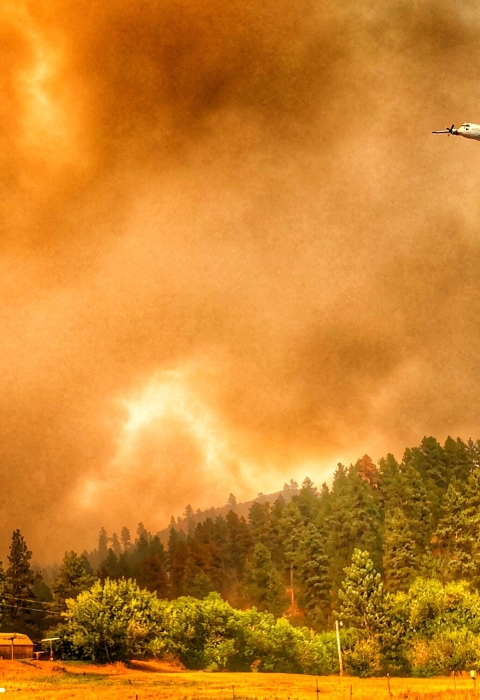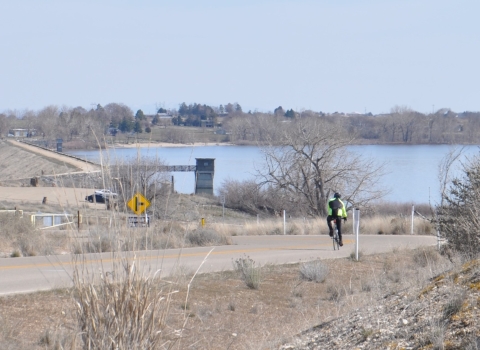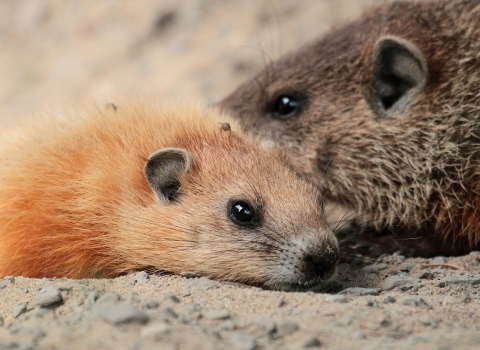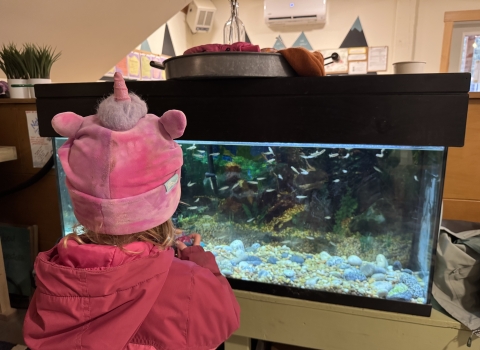ln 2021, wildfire season started earlier than normal in Montana, where I was living. For years we have been experiencing earlier and more severe wildfires due to higher temperatures. Today, the sad reality is that we no longer experience fire seasons; we experience fire years.
These longer and more intense wildfires are stark examples of the impact of climate change.
For Montanans, the fires meant that in July instead of August, streetlights began coming on during the day because of thick smoke obscuring the sun.
Outside of the poor air quality, I was lucky and not in physical danger from the wildfires. But the inability to see blue skies was hard. I felt daily like something was pressing on me.
That put me among the millions of people affected by our changing climate.
Wildlife and their habitats are reeling, too, and the news is grim.
As you will read in our story “Preventing Extinctions in a Changing Climate” (p. 12), all the old threats to wildlife — habitat loss, overuse, and the like — are now exacerbated by sea level rise, worsening drought, wildfire, and other impacts of climate change.
The story “Protecting Migrations” (p. 16) shares one of the truly distressing problems associated with climate change. Migratory wildlife depend on environmental cues to know when to arrive in areas to be able to eat, find shelter, or breeding habitat. Climate change is altering nature’s clock and threatening the survival of these animals.
The Bramble Cay melomys, a small Australian rodent, may be the first mammal lost to climate change, specifically sea level rise. It won’t be the last.
We know that some wildlife will face extinction as the effects of climate change increase. Some species won’t go extinct but will disappear from places they have long called home. As they find new ranges to meet their needs, they may displace resident species.
So how do we respond?
For the public, the Service has put together resources on ways to get involved on climate change. If you’re reading this magazine, you are already on your way to helping. Staying informed about climate change is the first step.
For Service employees, we have developed a Climate Change Action Program (p. 2). We are working with partners you would expect and others that might surprise you, as you will see in this issue. You’ll also read about our new Resist-Accept-Direct (RAD) framework in action as our managers make decisions for wildlife in a changing climate (p. 28).
The RAD approach will be important to our future success. Historically, we looked at past conditions to anticipate the future of a landscape and used this information to inform our management decisions about habitats and wildlife.
No longer. Climate change means we can no longer manage for the past. We must manage for today and for a rapidly changing future. RAD is a way to do that.
But RAD does not mean we are abandoning the lessons history has taught us. We know that even the most horrific environmental crises can serve as the impetus for great conservation success. For example, the Dust Bowl in the 1930s spurred unparalleled waterfowl habitat restoration. We’ve seen unprecedented investment in Gulf restoration because of 2010’s Deepwater Horizon disaster.
Climate change is not a simple subject with simple solutions. I know it can be easy to throw up your hands and feel overwhelmed. But we will rise to the challenge. With a nod to those who came before us and carried the torch for conservation, our time is now to leave a legacy that future generations can be proud of.
I know that we can come together and rise to meet this moment by tapping into our expertise, innovation, and dedication to our mission.
- This article is from the spring 2022 issue of Fish & Wildlife News, our quarterly magazine.
- More Fish and Wildlife News.



